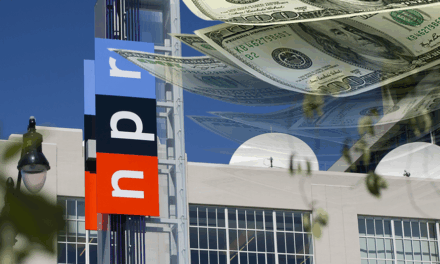In a high-stakes congressional hearing, executives from National Public Radio (NPR) and the Public Broadcasting Service (PBS) were put under intense scrutiny by Republican lawmakers regarding allegations of biased reporting and the use of taxpayer dollars for partisan purposes. The atmosphere was charged as the leaders were confronted with pointed questions and criticisms regarding the integrity of their news coverage.
At the outset of the hearing, Republican members of the House Committee on Energy and Commerce expressed their growing concerns about the role that publicly funded media organizations play in shaping political narratives. They argued that both NPR and PBS have exhibited a tendency to favor liberal viewpoints, questioning their commitment to impartial journalism.
Representative Cathy McMorris Rodgers, the chair of the committee, opened up the session by expressing her discontent with the perceived political leanings of NPR and PBS. “Public broadcasting should serve all Americans, regardless of their political beliefs,” she stated emphatically. “Yet, there seems to be a disconnection between the news we receive from these organizations and the reality of the diverse viewpoints held by our citizens.”
As lawmakers began their questioning, they pressed NPR President John Lansing and PBS President Paula Kerger on specific instances where they felt coverage had been skewed. They pointed to various stories that highlighted differences in the treatment of various political parties and issues, suggesting that these disparities reflect a broader pattern of bias.
One prominent example discussed was NPR’s coverage of the 2020 presidential election. Lawmakers emphasized that they believed NPR failed to adequately represent opposing viewpoints when discussing controversial topics such as the handling of the pandemic, economic policies, and social justice movements. The committee highlighted this as a failure to provide balanced reporting as expected from a taxpayer-funded institution.
In response to the allegations, Lansing defended the integrity of NPR’s journalism. “Our goal at NPR is to provide accountable and fact-based news,” he asserted. “We cover a wide range of perspectives, and while we acknowledge that there may be criticisms of our work, we remain committed to reporting on essential issues that affect our audience.” Lansing emphasized the rigorous editorial guidelines that govern NPR’s reporting process and the measures in place to ensure fairness.
Kerger echoed similar sentiments during the session. “PBS has historically been a platform for diverse voices, and we prioritize providing educational content for all viewers,” she stated. In addressing accusations of bias, she referenced PBS’s commitment to fact-oriented reporting and their efforts to showcase a broad spectrum of opinions, including those that may not commonly receive airtime elsewhere.
Lawmakers, however, were not easily placated. Some argued that taxpayers should not have to support media outlets they believe do not adequately reflect their viewpoints. They pointed to the funding structure of both organizations, which relies significantly on government support as well as viewer donations. With many Americans expressing concerns about media bias and misinformation, the issue has sparked significant debate about the viability of public funding for what some perceive to be partisan organizations.
The hearing took a particularly heated turn when lawmakers began examining the operational budgets of NPR and PBS, scrutinizing how public funding is allocated. The conversation turned towards the transparency of their financial practices and the proportion of taxpayer money that directly supports partisan programming. GOP representatives urged both organizations to disclose how funding is spent and to provide clearer accounts around corporate and philanthropic sponsorships that may introduce bias into their programming.
Representatives called for heightened accountability, questioning whether there should be more oversight on how organizations like NPR and PBS use public money. They posed the question of whether these institutions have lost their way, with some suggesting that the balance struck between public funding and content neutrality has been disrupted. The criticism of financial management resonated with many lawmakers, who maintain that if public funding continues, there must be mechanisms in place to ensure that coverage represents the diverse viewpoints of the American populace.
Critics of the hearing have expressed concern that the focus on NPR and PBS is part of a broader trend to undermine independent journalism. Advocacy groups defending public broadcasting have rallied against what they describe as political tampering with public media, arguing that accusations of bias often stem from partisan sensitivities to dissenting narratives. They warn that these hearings could set a dangerous precedent, leading to weakened public media and restricting journalists’ freedom to report on critical issues affecting society.
Despite the tensions, both Lansing and Kerger remained composed throughout the questioning, committing to a dialogue centered on addressing the concerns raised. They highlighted the importance of ensuring editorial independence, stating that it is crucial to maintain credibility with audiences. The two executives reiterated their willingness to engage with lawmakers regarding any perceived concerns and emphasized the value of constructive criticism in the pursuit of quality journalism.
Throughout the hearing, some lawmakers opted to shift the narrative, posing questions about the role that media literacy plays in the public’s perception of bias. They encouraged discussions around how organizations like NPR and PBS can work to enhance transparency and reach audiences who feel underserved or misrepresented. Suggestions included educational campaigns to bolster critical thinking and address accusations of partisanship through storytelling that is inclusive of various perspectives.
Ultimately, the grilling from GOP lawmakers provides insight into the mounting political pressures faced by publicly funded media institutions. As the debate around media bias and taxpayer-funded journalism continues, it raises larger questions about the role of public media in fostering informed citizenship, ensuring diversity of opinion, and maintaining accountability in a heated political climate.
In reflecting on the hearing’s outcomes, it is evident that the future of NPR and PBS, as they navigate allegations of bias and transparency challenges, is uncertain. As public trust in media ebbs and flows, these organizations must find ways to reassure the public of their commitment to unbiased and accurate reporting. Striking a balance between funding and independence will remain a vital discussion as they move forward in serving the public interest.
The implications of this hearing extend beyond NPR and PBS, as it highlights a crucial moment in the ongoing struggle for accountability in journalism. With public opinion becoming increasingly polarized, the boundaries of media influence and the expectations for responsible reporting are being challenged at every turn. As both lawmakers and media leaders grapple with these questions, the outcomes will shape the media landscape for years to come.
































